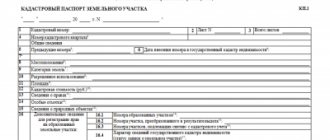Home / Real estate / Purchasing real estate / Buying an apartment
Back
Published: 12/19/2017
Reading time: 6 min
0
112
The purchase of real estate using borrowed funds is currently widespread in the Russian Federation, since a large number of people want to purchase housing for themselves, but do not always have all the necessary amount to make such a purchase.
- What is collateral and when is it used?
- Procedure for registering a pledge
- Registration of the contract
As a guarantee of the return of borrowed funds, the bank requires the provision of collateral, the use of which is drawn up in a special agreement.
Who can draw up a loan agreement secured by real estate?
All individuals who have reached the age of 18 and have legal capacity can enter into a real estate pledge agreement to secure a loan. However, it is not necessary to have Russian citizenship. Foreign citizens and stateless persons can also participate in the transaction.
Any real estate object can be used as collateral: apartment, house, land, garage, room, commercial premises, unfinished construction, etc. The lender has the right to establish requirements for the condition of the collateral. For example, he may refuse to provide money if dilapidated housing is offered as collateral.
Real estate can only be pledged by the owner. Ownership must be documented. This means that if a person lives in an apartment on the basis of a social tenancy or rental agreement, he cannot use it as security for receiving funds.
List of papers required for collateral
Applications for secured loans are processed on average 3-7 days. The period largely depends on the availability of all necessary documents. If the borrower does not provide any certificate on time, the processing time for the application may increase.
Next, we will consider in detail the requirements for the package of documents required to obtain a loan secured by an apartment.
Identity documents
You must provide the original passport to the credit institution. This document serves to identify the borrower, so no lender will consider a copy of it (including high-quality color) without the original.
The following requirements are put forward for the borrower's passport:
- must not be physically damaged,
- must not be expired
- There should be no extraneous inscriptions on the document.
In addition, the passport provided must not be revoked. In other words, if the borrower has applied for a replacement passport in the event of physical damage, loss or theft, then the old passport cannot be used to complete the transaction. In some cases, the bank requires confirmation that the passport is valid.
In addition to the main document, the bank has the right to request an additional one. Usually this is SNILS. This paper allows you not only to confirm your identity, but also to check the status of the potential borrower’s pension account, which is an additional confirmation of his solvency.
Also, the following may serve as an additional document confirming identity:
- rights,
- international passport,
- pension certificate, etc.
Some credit institutions require you to provide a TIN.
Documents confirming marital status
Marital status influences the lender's decision-making, so it is important to prepare papers that will characterize it. These include:
- marriage or divorce certificate,
- birth certificate of the child(ren).
The absence of your spouse must also be confirmed officially - provide notarized confirmation that you are not currently married. If you have a spouse, then you must formalize his (her) consent to the transaction with a notary. This is necessary because the collateral property may be jointly owned. Accordingly, the decision to provide it as collateral must be made by both spouses together.
Documents confirming solvency
Documents that confirm your financial situation and solvency are among the most important. The information indicated in them allows you to understand how much income a person receives and what part of it he can allocate to pay off debt. Based on these certificates, the bank calculates the maximum amount that it can allocate. The higher the income, the greater the likelihood of loan approval and the issuance of the required amount.
If possible, all sources of income should be indicated. If you have additional income, this should be mentioned, since unofficial income is taken into account by some banks. There is no need to provide a certificate of income; the employer's contact phone number is sufficient. Bank managers will contact him to confirm the information.
You may also need the following documents:
- certificate 2-NDFL;
- certificate in the form of the bank;
- certificate on the employer's form;
- statements of bank cards and accounts;
- documents confirming other sources of income.
Additionally, you must provide a document confirming your employment - an employment contract or work record book, certified by the employer.
If the borrower's income is not enough, co-borrowers (usually close relatives) can be involved. In this case, their income will also be taken into account when considering the application.
Documents for collateral property
Only real estate that meets the lender's requirements can be used as collateral. They can be found on the bank’s website or at the nearest branch. To confirm the property’s compliance with these requirements, it is necessary to prepare a certain package of documents:
- extract from the Unified State Register or certificate of ownership (original);
- technical plan (original);
- a document that confirms the emergence of ownership rights (deed of gift, purchase and sale agreement, etc.);
- registration certificate;
- extract from the house register;
- floor plan;
- documents confirming the absence of debt on utility payments;
- conclusion of an expert who assessed the property.
The bank will provide a complete list of required documents, as requirements for them may vary.
Documents for registration
To draw up a pledge agreement, you must have the civil passports of the parties. The text of the agreement must indicate the details of the pledge holder and the pledgor.
A loan agreement will also be required for registration. Information about this document and the essence of the transaction must also be specified in the real estate pledge agreement.
In addition, it is necessary to provide documents confirming ownership of the property, as well as technical documentation of the property. The contract will need to specify the location address, area and other data that helps identify the object.
The collateral is subject to assessment. To carry out this activity, you will need to contact an appraisal company or an independent appraiser. The specialist will carry out the necessary work and prepare a report that will contain the current market value.
Legal actions with real estate are subject to state registration. Without going through this procedure, the pledge agreement will not enter into legal force and will be considered unconcluded.
Registration is carried out with the authorities of Rosreestr or MFC. To do this, you will need to prepare the following documents:
- an application from both parties (if the agreement was notarized, an application from one party to the transaction will be required);
- receipt of payment of state duty;
- the pledge agreement in three copies – one for each party and for Rosreestr;
- a document providing the basis for the emergence of ownership rights - a deed of gift, a purchase and sale agreement, a certificate of accession to inheritance rights, etc.;
- technical documents from BTI;
- an extract from the house register or the house register itself, if the collateral is a private house;
- act of redevelopment, if it was carried out;
- consent of the husband/wife to execute the transaction, certified by a notary;
- marriage certificate or divorce certificate;
- a certificate stating that at the time of purchasing the property the mortgagor was not married (issued by a notary).
If a representative acts on behalf of the owner, it is necessary to provide a power of attorney certified by a notary.
Features of using real estate as collateral
Those who are interested in how to buy a home with a bank loan should understand that they need to provide a money-back guarantee to the credit institution. To do this, you can use your old home, indicating it as collateral for the mortgage. Federal Law No. 102 also regulates that an apartment pledge agreement can be drawn up in relation to property acquired with a loan. In practice, it so happens that mortgage and pledge are perceived as identical concepts.
By virtue of the law on mortgage lending, each applicant must comply with a number of mandatory rules when concluding a transaction with a bank. The first condition will be an independent assessment of the property. It is organized at the initiative of the bank, and experienced specialists licensed to conduct valuation activities are called upon to conduct research and establish the objective value of the apartment.
The second condition is that before you issue a pledge, you must write a mortgage note. It is a registered security that gives the right to use funds aimed at securing the terms and obligations of a mortgage loan. Another significant factor is the registration of a mortgage when purchasing an apartment; it is important to draw up a sample application for Rosreestr correctly and reasonably, as well as attach a set of documents to it. In each individual case, the list can be supplemented and changed, but the standard set includes:
- mortgage agreement;
- pledge agreement;
- mortgage;
- receipt of payment of state duty.
Read also: How the registration of ownership of an apartment occurs: procedure and pitfalls
When a mortgage and pledge agreement between individuals, a sample of which was registered in Rosreestr, is correctly drawn up and does not contain errors, it is an encumbrance for housing. Such a restriction by force of law will not allow the disposal of pledged property (sell, gift, bequeath) without permission and notification of the banking structure.
How to draw up a real estate pledge agreement
When securing a loan with real estate, it is necessary to draw up a collateral agreement. This is an additional document that is required to be drawn up. You cannot combine both documents into one.
Dear readers! We cover standard methods for solving legal problems, but your case may be unique. We will help you find a solution to your problem for free
— simply call our legal consultant at:
+7 (499) 391-70-75 (Moscow)
+7 (812) 305-27-75 (Saint Petersburg)
8 (800) 550-97-45 (free call within Russia)
It's fast and free ! You can also quickly get an answer through the consultant form on the website.
Collateral is an additional obligation to the loan agreement. If the loan is found to be invalid, the pledge is canceled.
There is no standard form of agreement established by law. When drawing up, it is necessary to focus on the specifics of the transaction and the details of a specific situation. The loan agreement stipulates that “in order to ensure proper fulfillment of obligations to repay the loan amount within the prescribed period, the borrower provides the following property as collateral: (identification information about the property).”
It is further stated that the pledge agreement is an annex to the loan agreement. Accordingly, the real estate pledge agreement is drawn up in the second place.
The pledge agreement is drawn up in simple written form. In some cases, notarization may be required. The text of the document must contain:
- date and place of compilation;
- Full names of the parties, their passport details and address of permanent residence;
- information about the main agreement (type, details);
- description of the collateral – type, identification data, estimated value;
- rights and obligations of the parties;
- the procedure for replacing the collateral with other property;
- the amount of debt that is secured by the collateral;
- liability of the parties in case of violation of the terms;
- procedure for storing collateral;
- contract time;
- procedure for making adjustments and termination;
- additional conditions - whether the mortgagor can dispose of the property, whether the approval of the borrower is needed to replace the collateral, etc.;
- signatures of the parties.
The text of the document is written in business legal language. It is better to use the help of a specialist for these purposes.
How to apply for a deposit when buying an apartment
The pledge agreement must be drawn up in writing and requires notarization if such a requirement is indicated in the conditions. The contract must necessarily contain the following information:
- Indication of the parties entering into the contract;
- Information about the main agreement on the basis of which the pledge is issued: parties, details;
- Determination of the subject of pledge, indicating the address, technical characteristics (footprint, layout) and right of ownership;
- Determination of the rights of the parties: the owner of the collateral before returning the money to the creditor, what manipulations can be performed with the collateral and on what grounds;
- The possibility or impossibility of replacing the collateral and what will be required for this;
- Scope of security for the collateral: full, partial
- Indication of the party ensuring the safety of the pledged item and responsible in case of its damage or loss
- Indication of the duration of the contract;
- Details of the parties.
Mandatory terms of the pledge agreement
Without specifying the mandatory conditions, the contract is considered invalid. These conditions are:
- name of the document indicating the date and place of the action;
- passport details of the parties;
- description of the subject of the contract;
- duration of the agreement;
- link to the loan agreement (document details);
- duties of the parties;
- settlement of disputes;
- signatures of the parties.
It is important to note that the subject of collateral may not be any property. If real estate is provided as collateral, the provision of which as security is impossible by law, the contract will also be invalidated.
Such property is:
- withdrawn from circulation;
- emergency or dilapidated;
- not owned by the pledgor;
- burdened with arrest or other obligation.
In other cases, there are no obstacles to processing documents.
Storing the collateral
The parties need to decide who will hold the collateral until the debt is paid. In accordance with Art. 338 of the Civil Code of the Russian Federation, the object remains with the pledgor, unless a different procedure was provided for by the agreement. In some cases, it is permitted to transfer property for storage to third parties.
Information about the storage procedure is also written in the text of the document. If this clause was not provided for in the contract, then by default the property remains with the borrower.
If any difficulties or disputes arise, please seek legal advice. You can get free legal assistance on our website. in a special window.
Now you know how a real estate pledge agreement is drawn up to secure a loan agreement. It is recommended that you consult a professional lawyer to draft the document. This will help avoid problems in the future.
What the law says about registering a real estate pledge agreement in Rosreestr
A real estate pledge is an encumbrance (restriction of rights) that can be placed on buildings, houses, land, etc. objects to ensure the fulfillment of any obligation (usually a loan or loan). A simple example: A lent B a certain amount of money. In order for A not to worry, the parties entered into an agreement on a mortgage, the subject of which is B’s country house. If B does not repay the loan to A on time, then A will have the right to recover his money from B’s mortgaged house.
The legal instrument in question ensures the execution of large transactions and is imposed on serious and expensive objects, therefore the state monitors such transactions with redoubled force and tries to make them safer. In particular, one of these protective measures is the requirement to register the burden; the real estate pledge agreement itself does not need to be registered with Rosreestr since July 2014.
For state registration, the parties must jointly contact the registrar and provide the necessary documents:
- mortgage agreement (the condition on the burden on the “real estate” can be included in the main document on the loan, credit, etc.);
- mortgage;
- copies and attachments to the mortgage that are indicated therein.
It is also worth noting that a pledge obligation can arise either by agreement of the parties or by force of law (for example, housing that was partially or fully acquired through a bank loan). In such cases, registration of the encumbrance occurs together with the registration of ownership of the subject of the pledged obligation, therefore you will need to additionally submit to the register:
- title document for the apartment;
- technical plan.
The period for registering a real estate pledge in Rosreestr is 7 working days, with the exception of residential premises, which are registered in 5 working days.










